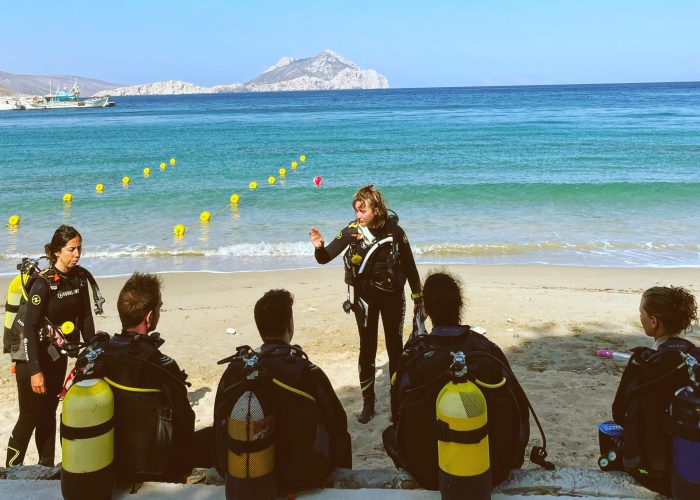When people scuba dive, we breathe compressed air under pressure, expanding our lungs with every inhale, allowing gasses to diffuse into our bloodstream at high pressure. This allows nitrogen to saturate our bloodstream and tissues at a high concentration. When descending it’s perfect, but it becomes a concern during the ascent. If the ascent is too rapid, it can lead to the formation of nitrogen bubbles in our bloodstream and joints. These bubbles disrupt blood flow and can lead to issues from skin rashes to serious nervous system disruptions. This complication is called Decompression Sickness (DCS)
Marine mammals such as whales, dolphins and seals repeatedly dive deep into the seas, often for long periods of time. So how come do they not have to worry about decompression sickness or take special safety precautions?
When marine mammals dive, they do so under breathhold, not using compressed air to breathe while they dive. Similarly to people freediving, not inhaling gasses under pressure means there is a much lower risk of absorbing enough nitrogen to saturate our tissues enough to cause problems on ascent. Amongst the freediving community, there have been only very few cases of DCS and only in cases of repetitive deep dives.
Marine mammals dive much more frequently and longer than humans will ever be able to freedive, so how come they avoid decompression sickness?
The bodies of marine mammals have developed special physiological adaptations that help avoid supersaturating their bodies with nitrogen while also helping the body conserve oxygen.
Mammals, whether marine or not, have a reflex called the Diving Response. In humans it helps us by slowing our heart rate. In whales and other marine mammals this reflex has many more adaptations. Besides slowing their heart rate, it also directs the blood flow away from the muscles and into critical areas such as the brain to conserve energy and blood oxygen. Their blood and tissues also have a much higher capacity for oxygen retention, allowing them to stay under much longer. One of the biggest physiological adaptations of marine mammals is the way they can control their lungs on descent. Their lungs are split into 2 parts, allowing them to collapse the lower part of their lungs, pushing air up, to be stored in their reinforced trachea, where it cannot exchange gasses with their bloodstream. This ensures that the only nitrogen in their bloodstream is that from the surface air pressure which will be safe to ascend with.
Until 2002 it was believed that marine mammals like whales are completely able to avoid decompression sickness. But in 2002 there was a mass stranding event in the Canary islands following a naval sonar activity in the area.
The deceased beached whales were autopsied with signs of decompression sickness. These were apparent as bubbles in the bloodstreams. Since then, similar signs have been detected in other marine mammals that have beached in areas close to recent sonar activity. It is currently believed that noise disturbances, like ones caused by sonar activity, likely startle marine mammals, causing a disturbance in the diving reflex. In cases of noise disturbance, the animals have also been noted to ascend rapidly, leading to similar signs of decompression sickness in humans.
The majority of the studies on marine mammals and decompression sickness involve deceased animals, therefore it is difficult to conclude for sure that marine mammals do not regularly suffer from decompression sickness. Currently in the scientific world it is believed they have special body adaptations that prevent them from suffering from DCS and it is only observed in instances where they have been started and hence abandoned their special adaptation techniques.
If you want to find out more information on the topic, check out the links below:


